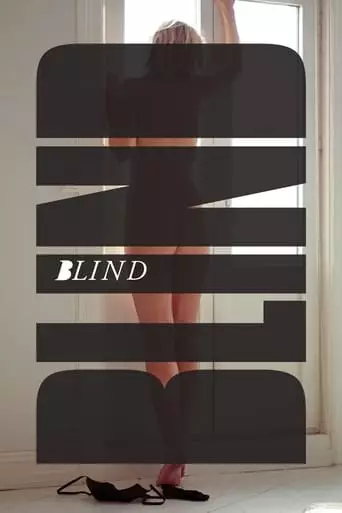
Having recently lost her sight, Ingrid retreats to the safety of her home—a place where she can feel in control, alone with her husband and her thoughts. After a while, Ingrid starts to feel the presence of her husband in the flat when he is supposed to be at work. At the same time, her lonely neighbor who has grown tired of even the most extreme pornography shifts his attention to a woman across the street. Ingrid knows about this but her real problems lie within, not beyond the walls of her apartment, and her deepest fears and repressed fantasies soon take over.
Blind is a 2014 Norwegian drama directed by Eskil Vogt. This introspective, psychological film explores the mind of Ingrid, a woman who is grappling with blindness after a traumatic event. As Ingrid navigates her new reality, her life unfolds within the confines of her home, where she battles isolation, paranoia, and the blurred line between reality and her imagination. The film delicately intertwines themes of vision, perception, and the fragility of identity, providing an intimate look into a person’s psyche when they lose one of their most fundamental senses.
In Blind, Ingrid, a middle-aged writer, struggles to adapt to her sudden blindness. As her vision fades, she retreats into a world of her own creation, her fantasies becoming more vivid and her grip on reality tenuous. Ingrid imagines her architect husband, Morten, spying on her, while she constructs elaborate scenarios in her mind, blurring the lines between the possible and the fantastical. This psychological tension is set against the backdrop of Oslo, where Ingrid attempts to make sense of her new existence, exploring the deep isolation that comes with losing one’s sight.
The film also introduces us to characters in Ingrid’s imagined world, including Elin, a new character who becomes the object of Ingrid’s fantasies. The plot revolves around Ingrid’s inner turmoil, her evolving paranoia, and the way she navigates through her fractured understanding of reality.
Eskil Vogt’s direction in Blind is minimalist yet deeply psychological. He explores the complexity of perception and the mind’s ability to create and distort reality, particularly when faced with loss and fear. Ingrid’s blindness becomes a metaphor for how we often perceive the world not as it is, but through the lens of our own emotions, memories, and anxieties. The cinematography is restrained, with many scenes being confined to limited spaces, mirroring Ingrid’s physical and mental confinement. The film’s slow pace and deliberate framing evoke a sense of disorientation, as Ingrid’s mind and the world she perceives are fragmented.
The dialogue is sparse, which complements the film’s meditative tone. Ingrid’s growing paranoia, brought on by her isolation and fear of abandonment, slowly disintegrates her perception of those around her, including her husband. The film’s narrative structure, which shifts between reality and Ingrid’s fantasies, provides an exploration of identity, trust, and the subjectivity of human experience.
After watching Blind, you may feel a sense of lingering unease, as the film encourages deep reflection on your own perception of reality and identity. The film’s portrayal of isolation and psychological conflict will likely leave you contemplating the fragility of human experience. The tension between what Ingrid believes to be true and what is real will resonate long after the film ends, prompting introspection about the nature of human relationships, trust, and self-awareness.
In the end, Blind is not just about a woman who loses her sight; it’s about the emotional blindness we all experience in different ways as we confront our own limitations and vulnerabilities. The film offers an intimate, poignant experience that challenges the viewer to reconsider what it means to truly see.
Conclusion
Blind is a captivating and thought-provoking film that blends psychological drama with a unique narrative structure. It explores complex themes like perception, isolation, and the human need for connection, offering an emotionally charged cinematic experience. If you’re looking for a film that makes you reflect deeply on the way we perceive the world and ourselves, Blind is a must-watch.
